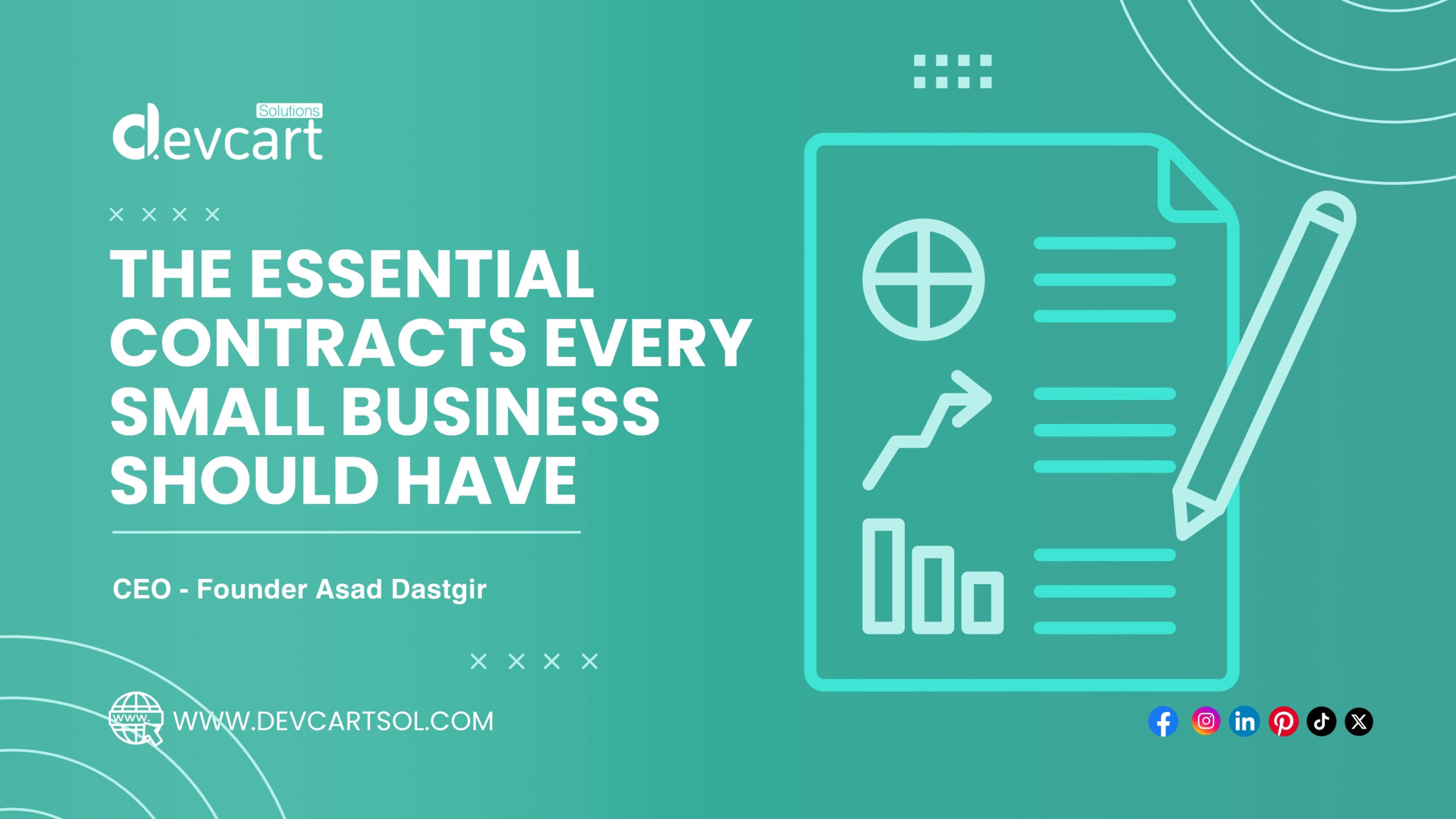Introduction
Running a small business involves more than offering great products or services—it requires legal protection. One of the most effective ways to safeguard your business is through well-drafted contracts. These legal documents can help prevent disputes, clarify responsibilities, and protect your assets. Whether you’re just starting out or looking to solidify your operations, here are the essential contracts every small business should have.
1. Operating Agreement or Partnership Agreement
If your business has multiple owners, this contract is a must. An Operating Agreement (for LLCs) or Partnership Agreement (for partnerships) outlines the ownership structure, management responsibilities, profit-sharing arrangements, and dispute resolution methods.
Key Elements:
- Ownership percentages
- Roles and responsibilities
- Voting rights
- Exit strategy for partners

2. Client Service Agreement
Whenever you’re providing services, a client agreement protects both you and your customer. It defines the scope of work, timelines, pricing, payment terms, and expectations.
Key Elements:
- Description of services
- Delivery deadlines
- Payment structure
- Revisions and cancellation policy
3. Independent Contractor Agreement
If you hire freelancers or contractors, this agreement clarifies that they are not employees. It outlines the terms of the working relationship, protecting you from potential legal and tax issues.
Key Elements:
- Project scope and duration
- Payment terms
- Confidentiality clauses
- IP ownership
4. Employment Agreement
When hiring employees, a formal employment agreement defines roles, expectations, compensation, and termination procedures. It’s essential for setting clear expectations and minimizing liability.
Key Elements:
- Job responsibilities
- Work hours and salary
- Non-compete and confidentiality clauses
- Grounds for termination

5. Non-Disclosure Agreement (NDA)
NDAs protect sensitive business information, such as client data, trade secrets, and marketing strategies. They’re especially important when sharing ideas with potential partners or vendors.
Key Elements:
- Definition of confidential information
- Duration of confidentiality
- Permitted disclosures
- Penalties for breach
6. Terms and Conditions / Privacy Policy
If your business has a website or app, these legal pages are crucial. They set rules for users and explain how customer data is collected and used—important for legal compliance (especially under laws like GDPR or CCPA).
Key Elements:
- User responsibilities
- Limitation of liability
- Refund and return policies
- Data collection practices
7. Sales or Purchase Agreement
When selling goods or making large purchases, a sales agreement ensures both parties understand their rights and responsibilities. It covers product delivery, warranties, and payment.
Key Elements:
- Product descriptions
- Delivery and shipping terms
- Payment schedule
- Warranty and return terms
8. Lease Agreement (If You Rent Property)
If your business operates from a leased space, this agreement should clearly spell out rental terms, maintenance responsibilities, and renewal options to prevent future conflicts.
Key Elements:
- Rent amount and due dates
- Maintenance and repair responsibilities
- Renewal and termination clauses
- Use restrictions

9. Intellectual Property Assignment Agreement
If you create content, software, logos, or designs (especially through contractors), this contract ensures your business retains full ownership of that intellectual property.
Key Elements:
- Description of IP created
- Transfer of ownership rights
- Payment or compensation details
- Usage limitations for creators
10. Loan or Investment Agreement
If you’re accepting money from investors or lenders, a clear agreement is essential. It defines repayment terms, equity stakes, or returns on investment.
Key Elements:
- Loan amount or investment total
- Repayment terms or equity share
- Interest or ROI expectations
- Exit strategy
Conclusion
Contracts are the backbone of a secure, professional business. While templates can be helpful, consulting a legal expert to draft or review these agreements is always recommended. By putting the right contracts in place, you can reduce risks, protect your interests, and build trust with clients, employees, and partners.















